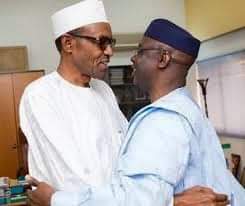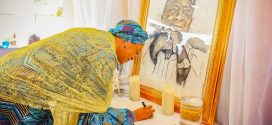It is somewhat curious that the January 5, 2020 ‘State of the Nation’ address broadcast a little over an hour on African Independent Television, AIT, was essentially collapsed into a one-tablet-cures-all condensation by the Nigerian media: that President Buhari should have a successor in place towards 2023!
Of course, the broadcast under review was by Dr. Tunde Bakare, the Serving Overseer of the Lagos-based Latter Rain Assembly (now renamed The Citadel Global Community Church). Periodically, the pastor and some kind of politician, puts an elaborate televised proclamation that is self-styled “State of the Nation” address.
Perhaps, it is not fair to imply that all the Nigerian media slept facing the same direction on this matter as only New Telegraph and Leadership newspapers towed a more robust path (unless I missed one or two others). The blogging chatterboxes, expectedly, simply sunk their teeth into the succession beef, splattering stews of conjectures all over the blogosphere. Some even inferred that Bakare was needling Buhari to pick him as his successor. The likelihood of that as a political exigency or deft partisan calculation was left to the imaginations of their readers.
As usual, the Presidency would not be found wanting in stoking political wildfire…a day after the broadcast, the president’s men were trumpeting their principal’s aversion to any succession plan directly involving him, insisting that the president would not “impose” any successor on Nigerians in 2023, in spite of the need to watch keenly over his enduring legacies. Maybe a calmer reading of the speech would pinpoint who could have shot himself in the foot. The Presidency or Bakare?
This is where my worry lies though: the media is expected to set agendas – not to set heads against each other. It is a notorious irony that while the media flourishes in the atmosphere of reading and writing, majority of its practitioners, arguably, hate reading… especially long-reads. So, it is not difficult to situate the “one-way” syndrome exhibited by the media in its attraction to the sensation of succession – an idea framed as the third leg of a pivotal subplot within more robust and ennobling ideas…in a long read.
Admittedly, Bakare’s epistle is an eloquent nightmare for many of our over-worked news editors and reporters – what with the intimidating challenge of wading through more than 5,700 words, formatted over 40 paragraphs, running across 27 pages!
The good pastor cannot, in all sincerity, say he was misquoted; yet, deep in his heart must remain a restless ache that the message has been disfigured, the import misdirected, and the essence mangled, unfulfilled.
However, my desire today is to plunge into the multi-layered treatise, themed “Unveiling The True Enemies Of Nigeria”, and attempt to turn my readers’ heads towards the more salient issues raised, wherein he proposed important palliatives, and made confounding reiterations of our stubborn problems. Perhaps, the Presidency and stakeholders, startled by Bakare’s scorching admonitions, can get off the Pontius Pilate high horse, and confront the ogres awoken.
The very long “Introduction” (about eight pages of 1,666 words) is essentially the bolts and nuts he used in welding Nigeria’s chequered trajectories of the diverse nationalities which cobbled some sort of nationhood that has endured all sorts of fissures in these 100 years (from 1920 to 2020).
So we don’t fall for easy excuses and cheap propaganda, his preliminary argument is to identify those who are NOT the enemies of Nigeria: it’s not the British who left us almost 60 years ago, and have morphed from masters to partners; it’s not self-determination groups and agitators, if their “activities are for the public good and within the ambit of the law”; it’s not those who challenge government… “champions of our democracy”….
After a cogent 542-word introspection, high on contemporary examples of civil challengers and civic champions, Bakare submits: “You may dislike their methods, you may not like their politics, they may be thorns in your flesh, but mustering the apparatus of governmental force against those who criticise the government by the words of their mouths or the strokes of their pens is nothing but a petty path of vengeance that will eventually boomerang…”
On the grumblings in government circles over the mounting spectre of social media disruptions, he argues: “the fact that some persons have deployed this tool in ways that have been less than honourable does not justify the attempted clampdown on freedom of speech by some legislators who major in minors. I, too, have been a target of social media vitriol. I have been misrepresented, maligned and falsely characterised by mischief-makers on social media, but I will not support the suppression of the most potent tool for citizen engagement in the 21st century through a misguided Social Media Bill…”.

 Hottestgistnaija.com
Hottestgistnaija.com



